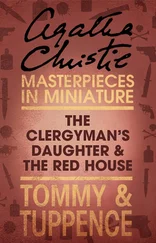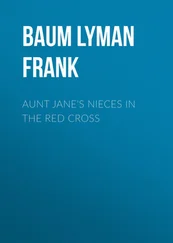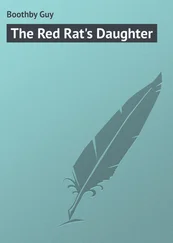John Schwartz - The Red Daughter
Здесь есть возможность читать онлайн «John Schwartz - The Red Daughter» весь текст электронной книги совершенно бесплатно (целиком полную версию без сокращений). В некоторых случаях можно слушать аудио, скачать через торрент в формате fb2 и присутствует краткое содержание. Город: New York, Год выпуска: 2019, ISBN: 2019, Издательство: Random House, Жанр: Историческая проза, на английском языке. Описание произведения, (предисловие) а так же отзывы посетителей доступны на портале библиотеки ЛибКат.
- Название:The Red Daughter
- Автор:
- Издательство:Random House
- Жанр:
- Год:2019
- Город:New York
- ISBN:978-1-40006-846-3
- Рейтинг книги:4 / 5. Голосов: 1
-
Избранное:Добавить в избранное
- Отзывы:
-
Ваша оценка:
- 80
- 1
- 2
- 3
- 4
- 5
The Red Daughter: краткое содержание, описание и аннотация
Предлагаем к чтению аннотацию, описание, краткое содержание или предисловие (зависит от того, что написал сам автор книги «The Red Daughter»). Если вы не нашли необходимую информацию о книге — напишите в комментариях, мы постараемся отыскать её.
The Red Daughter — читать онлайн бесплатно полную книгу (весь текст) целиком
Ниже представлен текст книги, разбитый по страницам. Система сохранения места последней прочитанной страницы, позволяет с удобством читать онлайн бесплатно книгу «The Red Daughter», без необходимости каждый раз заново искать на чём Вы остановились. Поставьте закладку, и сможете в любой момент перейти на страницу, на которой закончили чтение.
Интервал:
Закладка:
23 January
She has written me again, the Widow, her third letter in as many weeks. I recognize the stationery, her cursive on the envelope, the address in Scottsdale, Arizona, the postage stamp bearing the likeness of her late husband, the famous architect Frank Lloyd Wright, with his handsome, self-regarding mien and flowing white hair. The letter, like the others before it, so full of exotic intensity it practically opens and reads itself:
It was clear the moment I first saw your name, then read your extraordinary book. You have been returned to me. You are the first Svetlana I have heard of in this country since my daughter’s death, twenty-three years ago. A rare and luminous name. Nowhere else have I found it except in Russian fairy tales. And suddenly here you are, in this country where we have landed and reborn ourselves. Like you, my own darling Svetlana was filled with light and courage. I gave birth to her in Georgia, not far from the village outside Tiflis where your mother was born and raised. Yes, your mother. Whose own mother’s name was Olga, from which my name too comes. I do not believe in coincidence. The world is made of interlocked layers of energy and receptivity. Only the rare few, having trained and understood, can secure the pathways through time so that their energy may reach us here unmitigated. I have long steeped myself in the study and teaching of sacred dance, so that these pathways might never be closed to me. So that I may see them where others may see only walls and dust. In this way I have kept my husband’s spirit and genius alive here and throughout the world. His buildings are those very pathways I mention. His vision reaches back into the depths of time even as it grasps the energies ahead. You will see all this when you come here to visit. My daughter, you must come! You must.
It is strange and unsettling to be courted like this—made cosmic love to—by someone I have never met (at least, not in this life).
Contained in the envelope are photographs of the architectural compound in the Arizona desert where the Widow lives with her students and fellows— an entire Fellowship and School organized, as she describes it at proud and mystical length, according to the architectural principles and creative philosophy of her late husband. I study these pictures, hoping they might reveal something. He was a very famous architect—I have looked him up—though it is not greatness I think I see out there among the reptiles and cacti, but rather a claustrophobic flattening of space combined with theatrical displays of decoration. The ceilings oppressively low, the light generous, yes, but bowed down. No people in the photographs, no human faces. Standing by myself in my Princeton living room—pretty, square, with quaint details and plenty of room above my head—I try to read in these images the heart of this woman, this stranger reaching out to me across a vast, unknowable desert and the shadows of time, but all I see are empty rooms lacking comfort.
The letter continues. She wishes to tell me everything about herself, she insists, as a mother would to a daughter. At the center of her tale, a tragedy: in 1946, in Spring Green, Wisconsin, where the Fellowship has a second compound to which they all migrate for the warmer months, her daughter Svetlana was killed in a car accident along with Svetlana’s four-year-old son. As though the light of the world was stolen by a great hand and buried deep beneath the earth. The grieving son-in-law, Sid Evans, stayed on at the Fellowship, never remarrying, eventually becoming chief architect of the practice that still bears his father-in-law’s name and is faithfully sustained, I am to gather, under the Widow’s vigilant guidance. You will like Sid as much as I do. He is a man of substance, vigor, loyalty, a true man who knows true things.
True things— this is a phrase that recurs in the letters. Put together like this the words are seductive, taking on the sound of their intention, becoming irrefutable as idea, if not as fact. Not very Russian. (The Widow claims Georgian blood in her veins, along with Montenegrin.) My father was never one to talk much about Truth . Of course, he had no need. Whatever he said was by definition beyond truth—instantly it became reality, as it would thereafter be understood by anyone who valued his life.
The famous Architect named both his compounds, in Wisconsin and Arizona, Taliesin— a Welsh word, the Widow informs me, meaning the shining brow . Above the stone hearths he carved more Welsh words, meaning Truth against the world . This is beautiful and stirring language, a battle cry etched on a battle shield, and I confess that just the thought that there could be such a place, Truth, set opposite this other place, World, and that at the center of it could be this woman who presumes, without ever having met me, to know me intimately and call me daughter tugs sharply at the thread of longing I find ever dangling from my heart.
Us and Them .
My real mother believed in an Us too. In the Party that was her life and soul, all people were equal, and all equals had to sacrifice the same, none made special, including her own children. It was when she realized that human beings by their nature could not live this way for long, that in every garden there is a serpent and in every Us a young man who upon robbing his first bank for the revolution and getting his first taste of righteous bloody power, decides to change his name from Dzhugashvili to Stalin, I believe it was then she understood that her beloved Us was actually a cancer waiting to bloom, and that sooner or later They would win.
Four times in my life have I known this feeling of Us that my mother so desperately needed to believe in. The first was during the years before the war, when my widowed father still returned home each evening, calling out Housekeeper! as he entered the front hall and letting me dawdle on his lap in the dining room under the large portrait of my mother; when each evening after dinner (me sitting on his right among the six other adults—always six), before leaving to spend the night at Kuntsevo, in his overcoat smelling of pipe tobacco he came to my bedside and kissed me good night as I lay suspended in the comforting wash of his tenderness, halfway between dream and waking.
The second was that single miraculous day in the privately procured cinema with Lyusia, when for once we existed happily under the illusion that there was us and no one else.
The third and fourth were the births of my children.
I will never forget the moment I first truly understood. My memoir had been published, three autumns ago now, and after weeks of traveling everywhere and saying everything to a country that was still a stranger to me, I retreated to the Rhode Island house of a kind, older widow I had met on my travels. The two of us were sitting one evening in her living room, watching the television news while eating our dinners from plastic trays (something Americans are always eager to do if given the chance). Now to international matters, the newsman Walter Cronkite was saying. It turns out that, one way or another, the dead Soviet dictator Joseph Stalin is still very much on the minds of his people. What you are about to see is from a recent interview with Stalin’s grandson Josef Alliluyev, whose mother, Svetlana, defected to the United States last spring. And with that, Cronkite’s trustworthy face was replaced on-screen by my son. The setting I immediately recognized as our old Moscow apartment. Seated rigidly at the desk where I used to work on my translations, he looked as though he were presenting himself for an exam he knew he would fail. In poor Russian (with English subtitles) the German correspondent asked Josef if he had anything he would like to say to the mother who had abandoned him.
Читать дальшеИнтервал:
Закладка:
Похожие книги на «The Red Daughter»
Представляем Вашему вниманию похожие книги на «The Red Daughter» списком для выбора. Мы отобрали схожую по названию и смыслу литературу в надежде предоставить читателям больше вариантов отыскать новые, интересные, ещё непрочитанные произведения.
Обсуждение, отзывы о книге «The Red Daughter» и просто собственные мнения читателей. Оставьте ваши комментарии, напишите, что Вы думаете о произведении, его смысле или главных героях. Укажите что конкретно понравилось, а что нет, и почему Вы так считаете.












